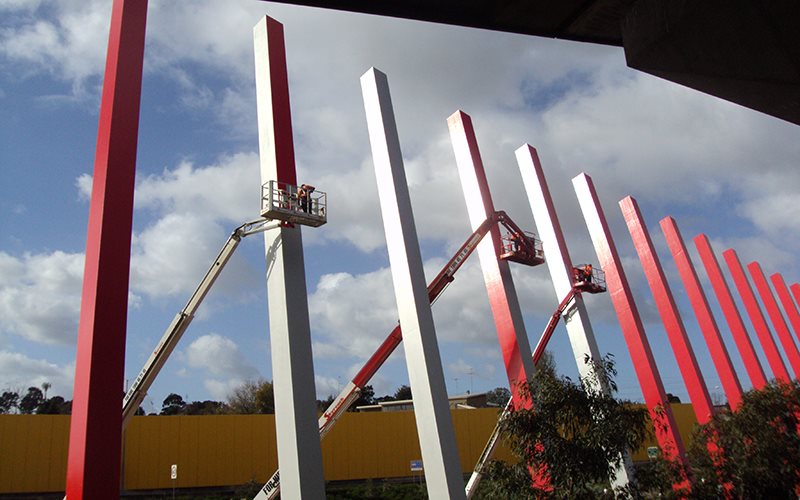

The Australian structural steel sector is roughly equivalent in capacity to the highly regarded UK fabrication industry, but with a focus on the engineering projects sector. The local fabrication industry has invested heavily in innovation, with new plant and automation expanding capacity and improving efficiency.
The industry is characterised by a diverse range of fabricators operating across a range of markets, from industrial buildings to complex structures in the oil and gas fields. Of a total market output of approximately 1.6 million tonnes/annum, the largest fabricators produce in excess of 20,000 tonnes per annum.
Productivity step-changes have been generated, with a shift from labour-based fabrication to ‘digital fabrication’ with computer numerically controlled (CNC) machines, beam lines, angle lines and plasma and gas profile cutting. This equipment efficiently creates fabricated steelwork straight from detailers’ 3D digital models. A characteristic of fabrication in recent years has been the move to introduce technology throughout the steel value chain, including CNC facilities at distribution level. The expansion up and down the supply chain into digital construction has brought with it efficiency, cost saving, time saving and improved safety.
-(1).jpg?variant=HalfWidth)
New and innovative business models are being developed, with better interface in the technology areas between engineers and detailers and the fabricator. Flowing from the UK, we are seeing the emergence of the ‘Design and construct’ steel contractor taking on an increased share of design and erection for the buildings market sector.
The market includes portal frame buildings like factories and warehouses, and commercial buildings such as multi-storey office buildings, shopping centres, schools, health and civic facilities. Steel brings advantages in speed of construction, lighter weight, reduced foundation costs and less site congestion. It also improves safety as most fabrication is offisite in more secure and safer manufacturing environments.
The capacity of the Australian fabrication industry is extended by the outsourcing of some functions to specialist subcontracted services. A community of specialist subcontractors augment the fabrication capacity in:
steel detailing
blast cleaning
painting
galvanizing
non-destructive testing
grating and handrail manufacture
bending
transportation

In-situ painting of steel structure. Courtesy Dulux Protective Coatings.
Fabricators often specialise in structural steel, pipe fabrication, plate fabrication or mechanical services fabrication. This has served the industry well, maintaining capability, cost effectiveness and flexibility.
The ASI Industry Directory provides a convenient starting point to assess the capability and capacity of fabricators and also the various entities providing specialised subcontracted services.